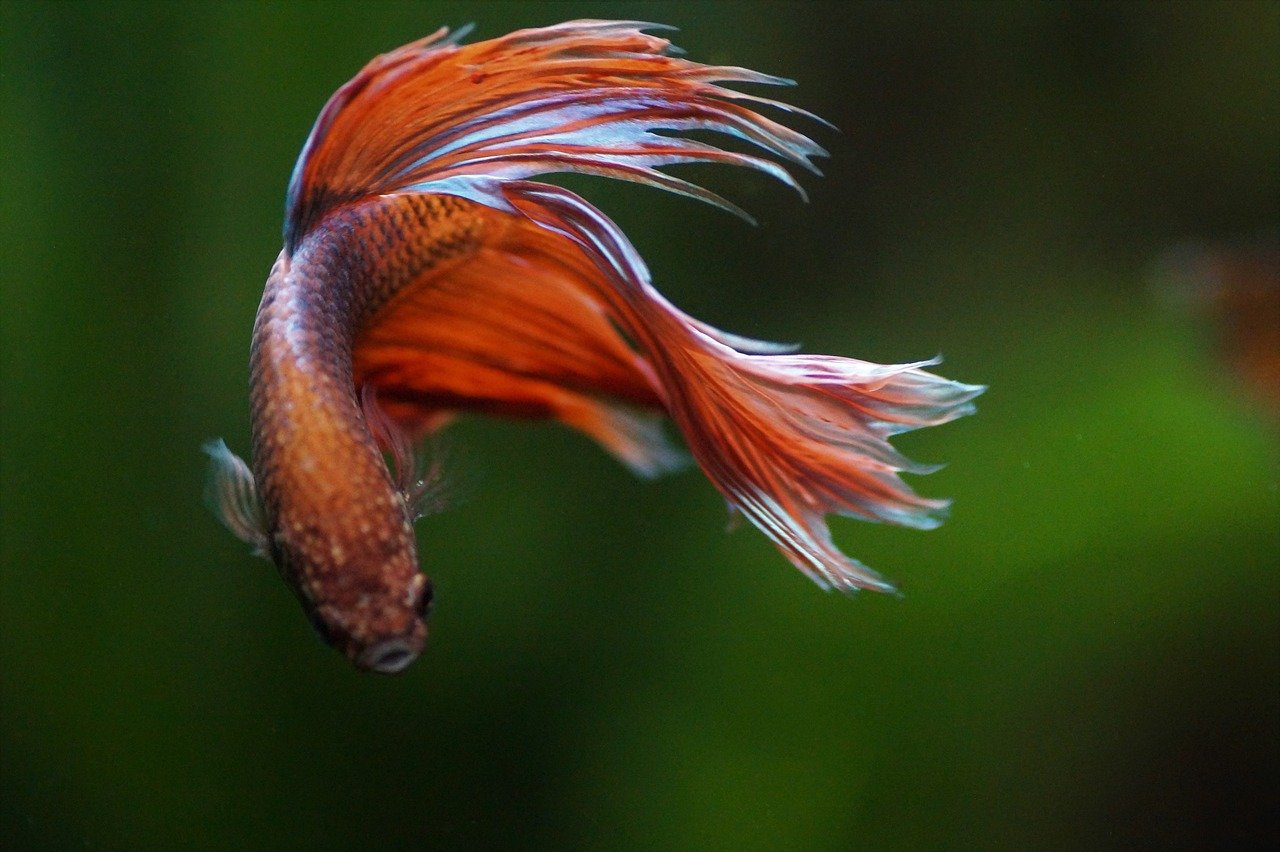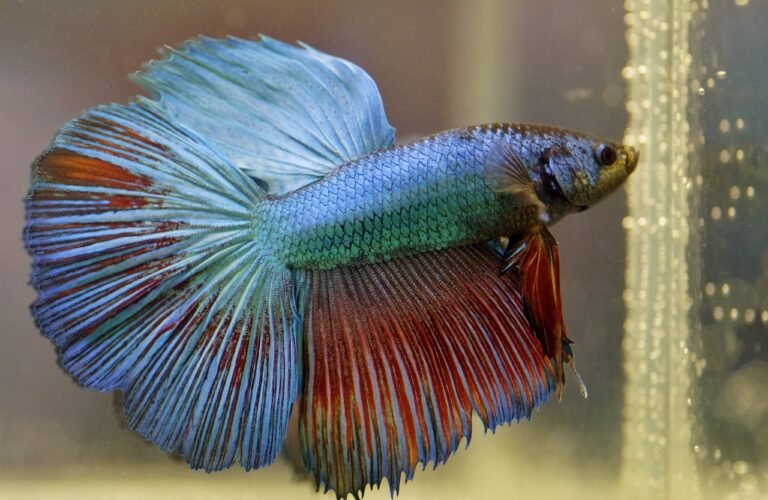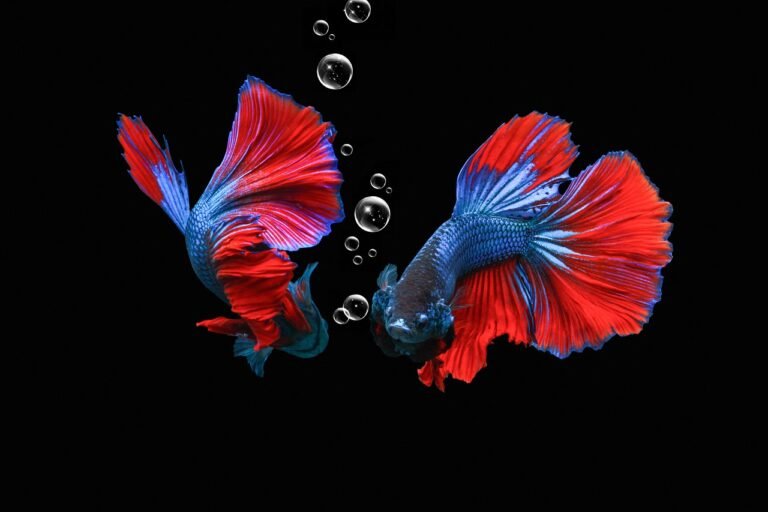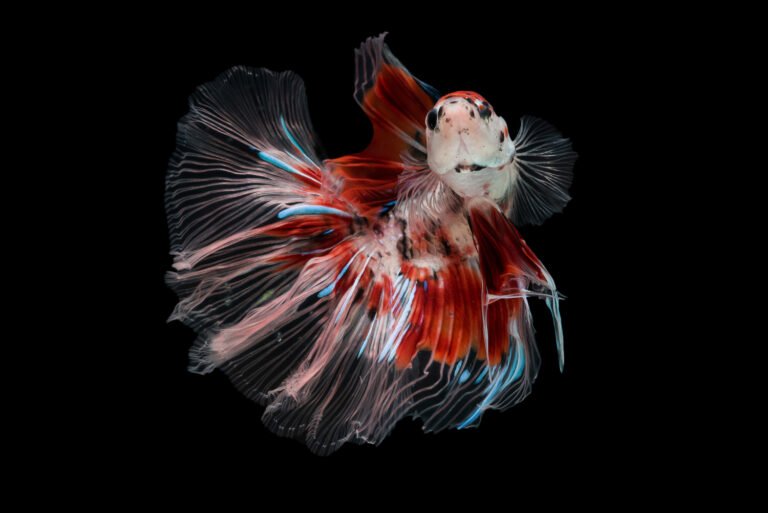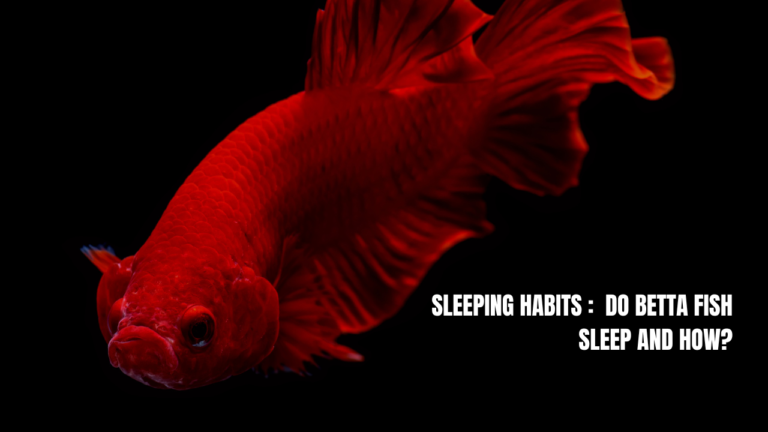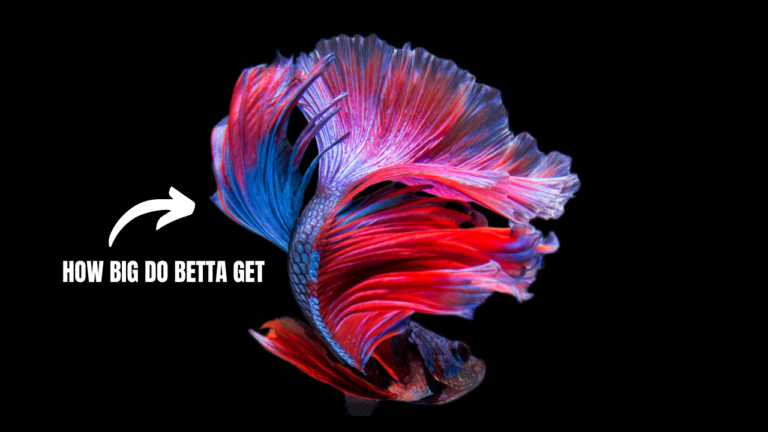Colorful, graceful, and mesmerizing – these words can perfectly describe betta fish, which are also known as Siamese fighting fish. If you are thinking about putting one of these magnificent creatures in your home aquarium, then this is the right article for you. Because they are easy to care for and have beautiful looks, betta fish are a favorite among both newbies and experienced aquarists.
In this complete guidebook we will delve into everything there is to know about betta fishes; their origin, unique characteristics as well as how best to take care of them so that they can live long healthy lives under our watchful eyes. Whether an expert enthusiast or just starting out with keeping fish this text should provide all necessary information needed before venturing into betta keeping hobby.
Why Betta Fish are popular as pets
There are several reasons why people from all over the world love having bettas in their homes but here are some. First off these animals possess amazing body colors coupled with delicate fin patterns thus making them visually appealing like no other marine creature could ever be. These displays range between typical bright blues or reds across more unusual metallic shades but each individual represents its own artistic masterpiece.
Secondly they can adapt themselves easily within different tank conditions due to their small size hence very suitable for those living spaces that might not allow larger tanks required by other species or even individuals who have never tried out keeping any kind of pet before. Consequently, unlike many different types of tropical fish which need much space in order to thrive well such as African Cichlids; Bettas will still do fine when kept alone without necessarily overcrowding provided basic needs are met accordingly.
Betta Fish tank setup
The best way to ensure that your Betta will be happy and healthy is by setting up its home correctly as well. Although they may seem like low maintenance pets, creating the right environment for them can greatly affect their overall well-being hence it’s very important.
Essential requirements for Betta Fish tanks
- Tank Size: Despite being able to survive in small spaces, it is advisable that you give them at least a 2.5 gallon tank or larger because this gives enough swimming area and also helps maintain good quality water.
- Filtration: A gentle filter should be used which will keep the water clean by removing dirt particles from it but without too much current as these creatures prefer slower moving waters thus select filters specifically designed for bettas or else adjust flow rate of filtration system accordingly.
- Heating: They are tropical animals so warm temperatures are necessary ranging between 76°F – 82°F (24°C -28°C) therefore having an adjustable heater is essential since they cannot produce body heat on their own.
- Decorations: To provide hiding places where your Betta can rest peacefully after all that swimming, try adding caves made out of stones or driftwood plus live plants such as anubias nana petite along with silk ones too because not only do they make tank look beautiful but also offer security feeling for fish when inside there.
- Substrate: Bettas have delicate fins thus require soft smooth substrates like sand or gravel otherwise injury might occur during scratching against sharp objects in aquariums.
Maintaining proper water parameters for Betta Fish
It is important that you keep water quality at its best if want these fish to live long healthy lives under captivity hence following are some key things monitor;
pH: Slightly acidic to neutral conditions ranging from 6.5pH-7.5pH would be ideal for them thrive well since most people use tap water which usually falls within this range already but in case yours doesn’t then consider using peat moss extract or almond leaves so as lower pH levels gradually over time until desired achieved however abrupt changes should be avoided as they may lead stressing out fish.
Ammonia and Nitrites: These chemicals should not exist in any detectable amounts since their presence indicates an unhealthy environment thus regular water changes coupled with a good filtration system will help eliminate them completely.
For your betta to have a healthy life, you need to invest in a water testing kit that can track these levels and determine if they need to be adjusted.
Betta Fish feeding habits and dietary requirements
The general well-being and vibrant colors of bettas require proper nutrition. In their natural habitats, these fish are carnivorous, thriving on insects, larvae, and small aquatic creatures among others.
Betta Fish Diet
- Nutritious Pellets: Opt for high-quality betta pellets that contain a mix of proteins, vitamins, and minerals.
- Live or Frozen Foods: Include frozen or live foods such as daphnia, brine shrimp, or bloodworms in the diet of your betta regularly for variety and enrichment.
- Vegetables: Occasionally give them some blanched vegetables like spinach or zucchini but just in small amounts.
Feeding Schedule
Feed your betta fish two to four times daily with small meals that are enough for them to finish within several minutes.
- Do not overfeed because uneaten food may contaminate the water leading to health problems.
- Skip one day every week while fasting the fish as it helps digestion process and prevents obesity too.
- Note that good nutrition is necessary for keeping lively colors as well as overall healthiness of bettas for a long period.
Understanding Betta Fish behavior
Bettas have unique behaviors which range from playful ones through aggressive ones hence knowing them is vital in creating a stress-free environment thus ensuring their welfare.
Flaring and Bubble Nesting
- Flaring: When this happens it means they are showing off its territory by flapping its gills while spreading out fins wide open; mostly occurs when seeing another male betta fish or own reflection in mirror-like surface area within tank walls.
- Bubble Nesting: Healthy male Bettas build bubble nests at the topmost part near water level signifying readiness for breeding; also acts an indicator of good health condition since it shows that the fish feels comfortable in its environment which must be clean too.
Aggression and Territoriality
Although generally peaceful fish, bettas can become very aggressive towards each other especially if they are both males. Therefore, always keep only one male betta per tank to avoid fights and injuries between them.
Resting and Sleeping Habits
Bettas are known for their unique resting positions, often lying on leaves or decorations near the water’s surface. This behavior is perfectly normal and should not cause concern.
By understanding these behaviors, you can create a stress-free environment and enjoy observing your betta’s natural tendencies.
Common issues with Betta Fish not eating
While bettas are generally hardy fish, there are times when they may refuse to eat. This can be a cause for concern, as prolonged lack of appetite can lead to health issues.
Reasons for Not Eating
- Poor Water Quality: High levels of ammonia, nitrites, or nitrates can stress your betta and cause loss of appetite.
- Incorrect Water Temperature: Bettas prefer warm water temperatures between 76°F and 82°F (24°C to 28°C). Fluctuations outside this range can affect their appetite.
- Recent Tank Disturbance: Bettas are sensitive to changes in their environment. Moving them to a new tank or performing major water changes can temporarily disrupt their feeding habits.
- Illness or Stress: Diseases, parasites, or stress can cause loss of appetite in bettas.
If your betta fish is not eating, start by testing the water parameters and making necessary adjustments. If the issue persists, consult with a knowledgeable aquarist or veterinarian for further assistance.
Betta Fish changing color or turning white
One of the most fascinating aspects of betta fish is their ability to change colors. However, sometimes these color changes can be a cause for concern.
Reasons for Color Changes
- Stress: Environmental stressors like poor water quality, fluctuating temperatures, or aggressive tank mates can cause your betta to lose its vibrant colors.
- Age: As bettas mature, their colors may naturally fade or change over time.
- Illness: Certain diseases or infections can lead to color loss or discoloration.
Turning White
If your betta fish is turning white or developing white patches, it could be a sign of a fungal or bacterial infection. This condition, known as “cotton wool disease,” requires prompt treatment with appropriate medication.
To prevent color changes and maintain your betta’s vibrant hues, ensure optimal water conditions, provide a stress-free environment, and monitor their health closely.
Betta Fish swimming sideways or displaying abnormal behavior
While bettas are known for their graceful swimming and unique behaviors, sometimes they may exhibit abnormal movements or patterns that can be resulting in sick betta fish which is concenring .
Reasons for Abnormal Behavior
- Swim Bladder Disorder: If your betta is swimming sideways, upside down, or struggling to maintain buoyancy, it could be a sign of a swim bladder issue.
- Neurological Problems: Certain infections or injuries can affect your betta’s nervous system, leading to erratic or uncoordinated movements.
- Physical Deformities: Some bettas may be born with or develop physical deformities that can impact their swimming abilities.
If you notice your betta exhibiting abnormal behavior, it’s important to closely observe their overall health and environment. Consult with an experienced aquarist or veterinarian for proper diagnosis and treatment recommendations.
Tips for taking care of Betta Fish
Caring for betta fish can be a rewarding and enjoyable experience, but only if done correctly so as not to harm these delicate creatures.
Provide Optimal Water Conditions: Maintain proper water parameters like temperature ranges between 78°F – 82°F (25°C – 28°C), pH levels from 6.5 – 7.5; also ammonia/nitrite should always test zero ppm using reliable test kit while making partial changes frequently say every week or fortnight depending upon betta fish tank size occupied by individual fish.
Offer a Varied Diet: Feed your betta different types of food such as high quality pellets containing all nutrients required by them in right proportions; live/frozen foods which provide natural diet rich proteins essential growth development process; occasionally boiled vegetables like peas without skin attached etc., avoid overfeeding them because this could lead to obesity-related complications besides fasting once weekly allows digestive system rest thus enhancing overall well being.
Create an Enriching Environment: Ensure there are plenty hiding places within aquarium along with gentle current flow mimicking natural habitat conditions they come from; use real plants or artificial ones made silk material since plastics can harm their delicate fins when brushed against causing injuries leading rotting away eventually death due bacterial infections caused through such wounds becoming entry points bacteria need thrive upon at expense poor little creature’s life
Monitor for Signs of Illness: Keep watch over signs showing disease like loss of appetite lethargy abnormal movements; seek immediate professional advice in case any doubt arises.
Perform Regular Tank Maintenance: Clean tank regularly using appropriate cleaning agents but never soaps/detergents because these can kill beneficial bacteria needed biological filtration process; change some portion water every two weeks; wipe off algae growing inside glass surfaces etc., take necessary precautions not disturb ecosystem balance established within it though careful handling various equipment/tools employed during this exercise
By following the above tips and providing proper care for them, betta fish will live a healthy life thus giving you many years of companionship joy.
Final thoughts
Keeping betta fish as pets is a rewarding and fascinating hobby that allows you to appreciate the beauty and unique behaviors of these remarkable creatures. From their stunning colors and graceful movements to their captivating personalities, bettas offer a truly unique and rewarding experience for aquarium enthusiasts of all levels.
Throughout this guide, we’ve explored the essentials of betta fish care, including tank setup, water parameters, feeding habits, and common health concerns. By following the best practices outlined, you can create a thriving and stress-free environment for your betta fish to flourish.
Remember, patience, attention to detail, and a genuine passion for these magnificent creatures are key to success in betta fish keeping. Embrace the journey, learn from your experiences, and enjoy the companionship of your vibrant and captivating betta fish.

